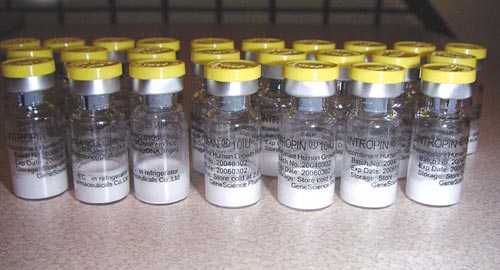 An important first step has been taken: HGH testing is coming to the minor leagues.
An important first step has been taken: HGH testing is coming to the minor leagues.
Over the past decade, the minor leagues have been the place where Commissioner Bud Selig has introduced new steps against the use of performance-enhancing drugs. The majority of minor leaguers are not members of the players union, which has allowed Selig to take drug-testing measures without the union’s consent. For instance, testing for steroids was initiated on the minor league level before the union later agreed to its use in the majors.
Selig plans to use the same blueprint with H.G.H., with a second baseball official confirming on Tuesday that Selig will now move to get the union’s approval to test for H.G.H. on the major league level.
Is this test bulletproof, however? This, I don’t know. But I do tend to trust testing gurus like Charles Yesalis when he weighs in:
“They have this test for some time and they only caught one guy,” Yesalis said in a telephone interview. “I wouldn’t bet my life on that test.”
See, that concerns me. The thing that will blow the testing process to smithereens and make a mockery of it all will be the false positives, or the claims of false positives. It’s all a defense attorney (or agent) needs, a small degree of reasonable doubt, to bust it wide open. Speaking of attorney-driven stuff, I turn to Craig Calcaterra, former attorney/current blogger/hero to many for his two cents:
My prediction, however, is that opposed to implementing something considered and reasonable, everyone will bow to media pressure and implement some half-assed, P.R.-driven plan that addresses virtually none of the legitimate concerns regarding HGH while blowing its dangers and effects out of any reasonable proportion.
Two years ago I wrote (again) about the prospect of storing blood tests until a reliable test was available. This might not be the reliable test we’re waiting for, but I still believe in protecting the current players (and their reputations). I’m not going to debate whether or not HGH is good or bad or indeed the fountain of youth sought by Juan Ponce de León. If MLB decrees that it’s illegal for their employees to be using it, so be it. That’s good enough for me.
What I am legitimately concerned about is having the players of today having to defend their performances another decade from now, trying to prove they did it cleanly. In storing blood, we have a baseline and a history in which we can determine who was and was not (or lucky enough to escape detection). So when Pujols retires, he can point to his blood tests, stored for 10+ years and say: “Check the blood; you’ll see I have always been clean.“ Without the historical baselines, it’s going to be another generation of “I did it clean because I say I did it clean.“ There will be a cloud covering players because, as Roger Clemens learned, you can’t prove a negative.
I asked FOTB and steroids/PED wizard Anthony Roberts for his thoughts on the subject. His response, via email:
“Growth Hormone is a very expensive drug, and depending on the source it can cost over $500 per week for a low dose. The idea that minor leaguers could afford the stuff seems to defy logic, and the testing protocol isn’t much better. They’ve had this alleged growth hormone test for several years now, and it’s never been peer-reviewed or validated by any outside scientists. So yeah, every couple of years, they might catch one guy out of a thousand, but the test itself is beyond problematic and testing people who can’t even afford the stuff is just ignorant.”
Though, if you become a client of Cenegenics, you can get your HGH on the “legit”, assuming you have the cash to do so.
Or, just take Beautisleep (won’t this be used as a “defense” of some player, not unlike Manny taking women’s fertility drugs?)